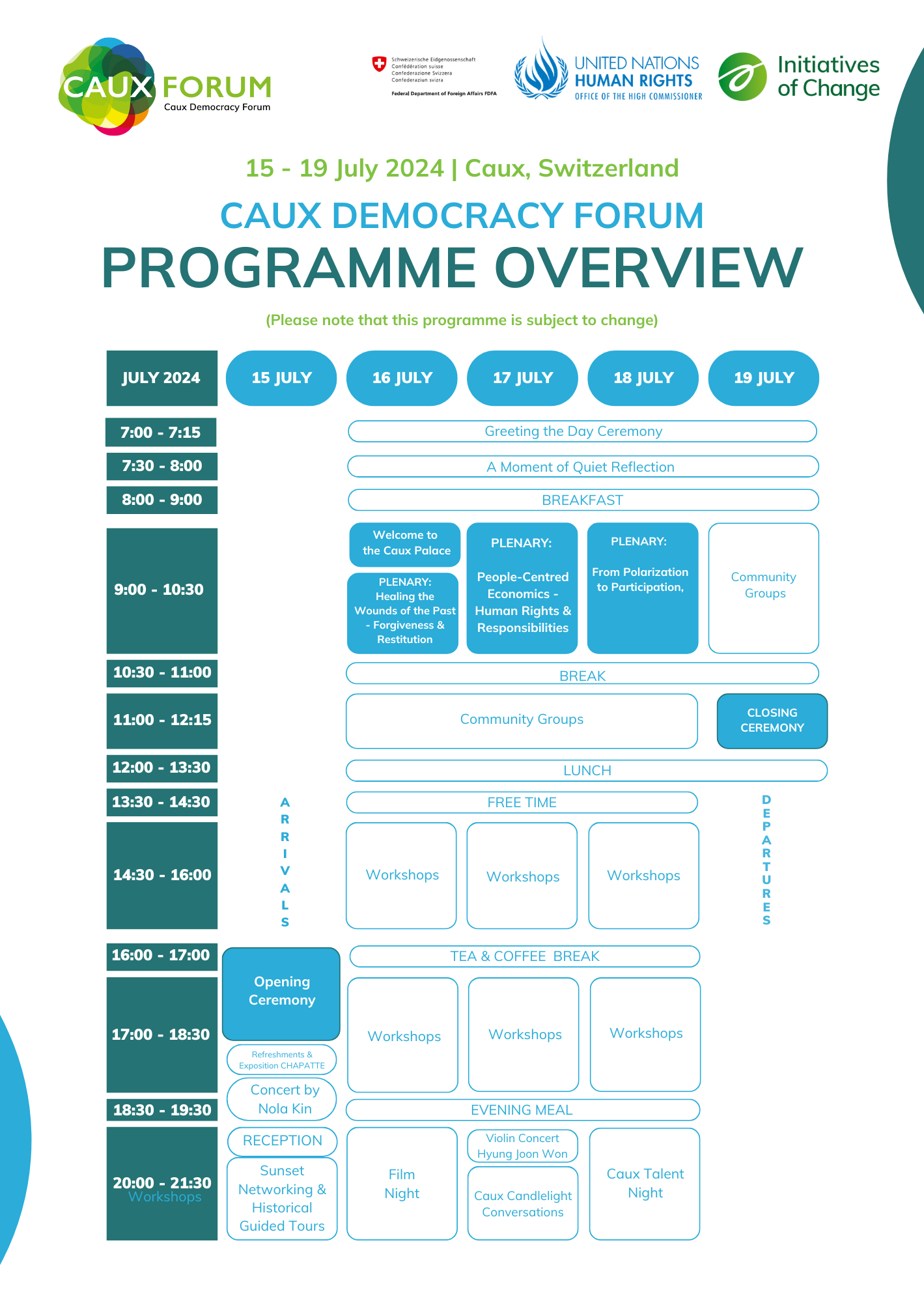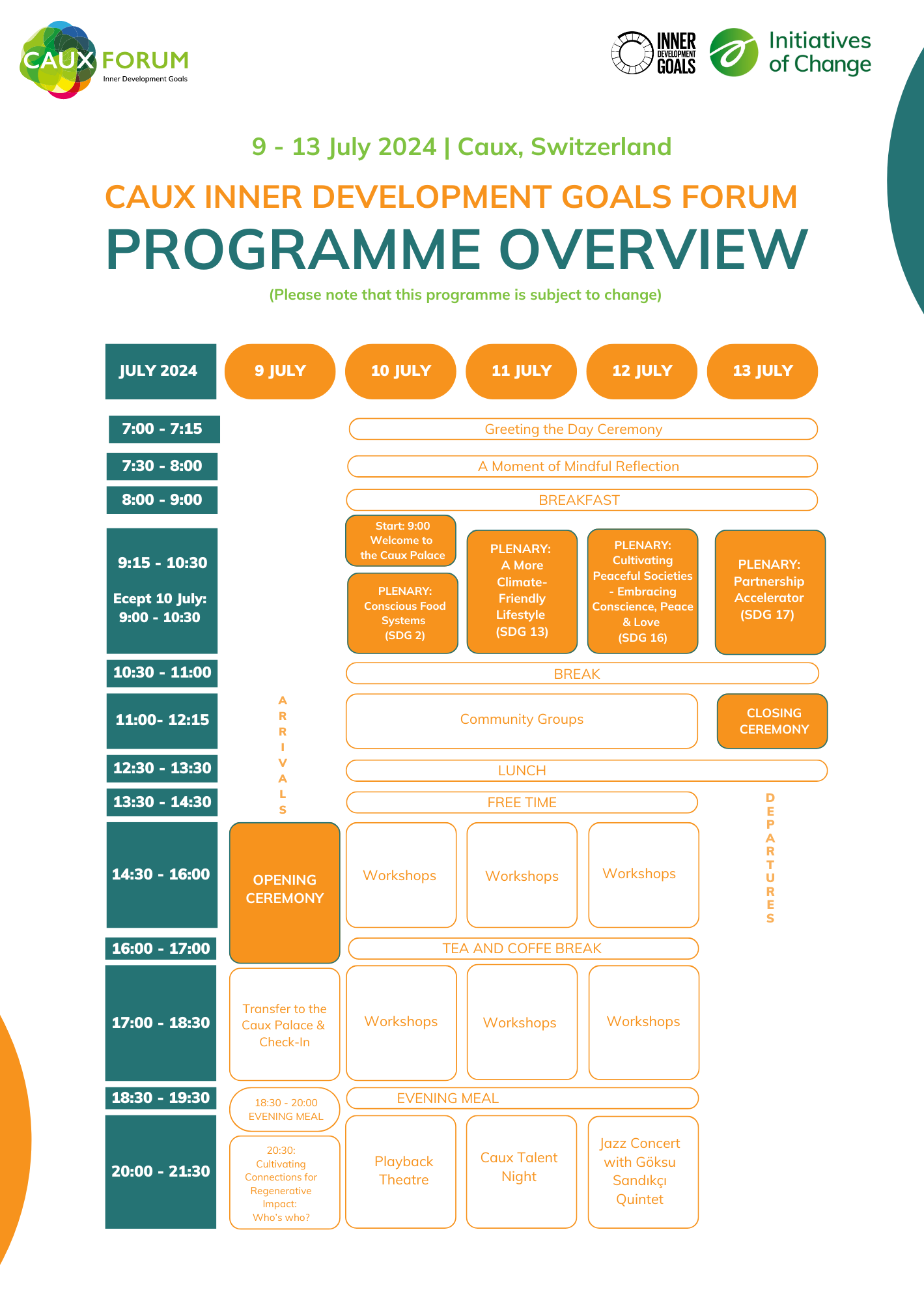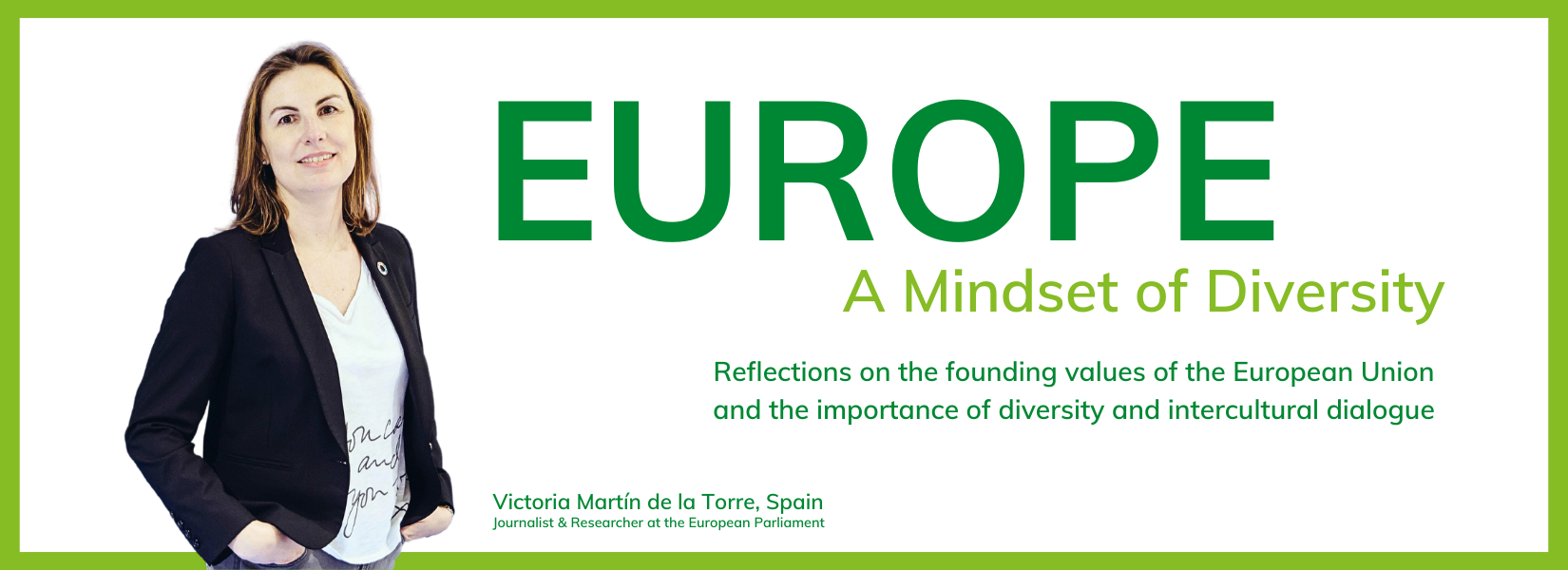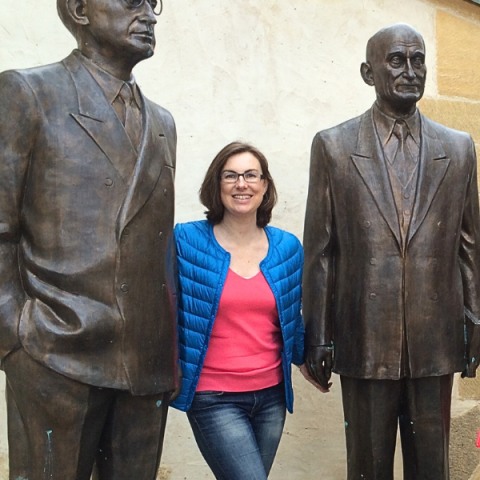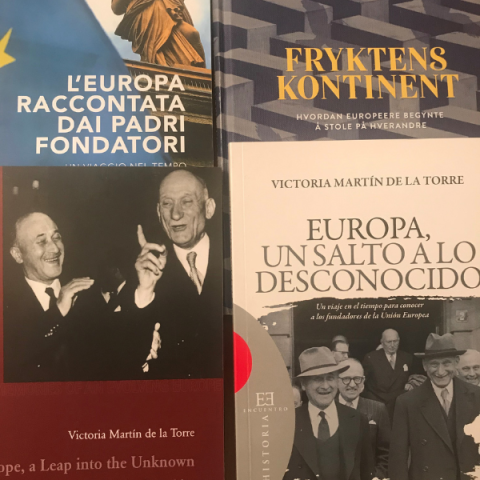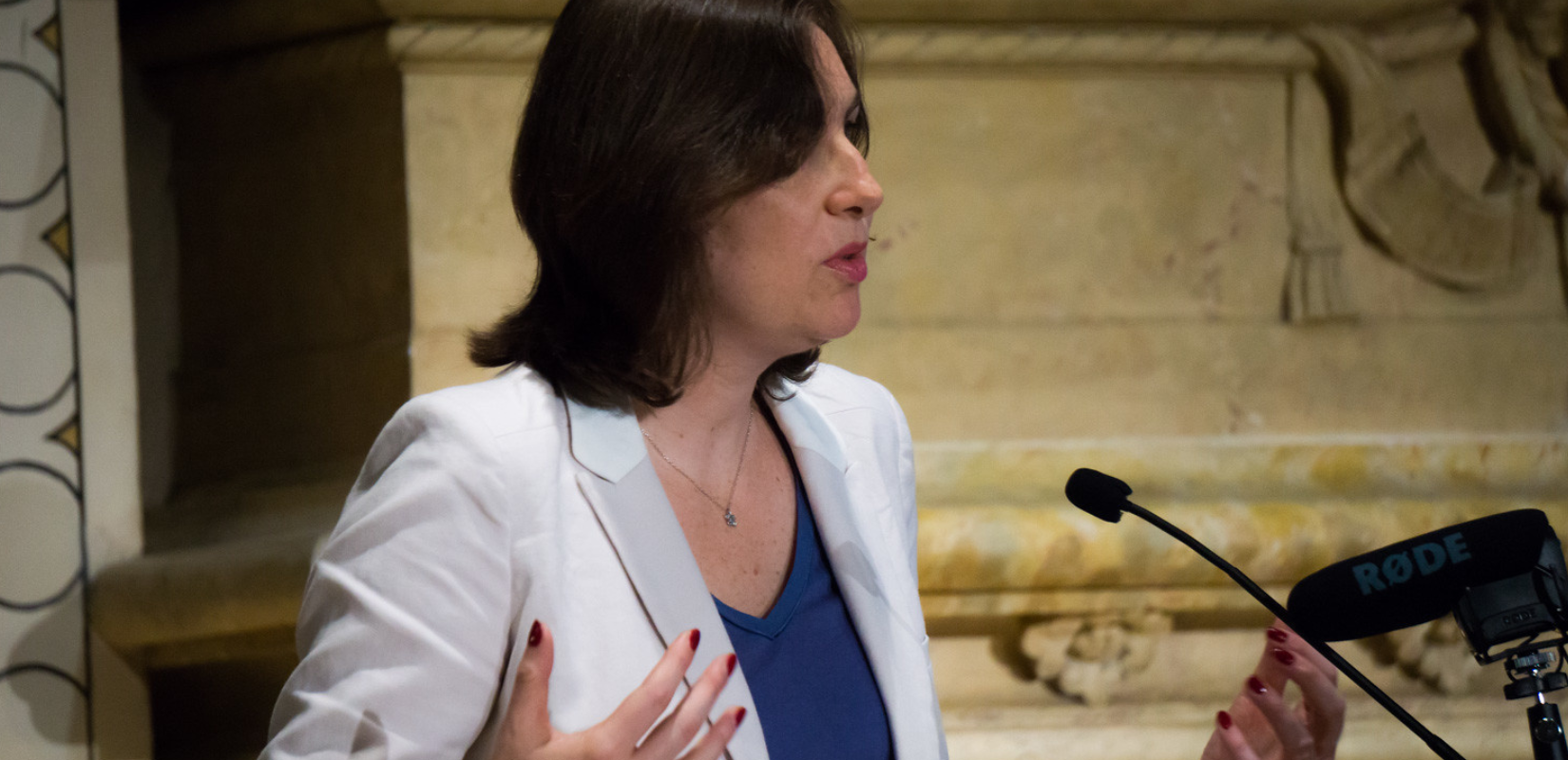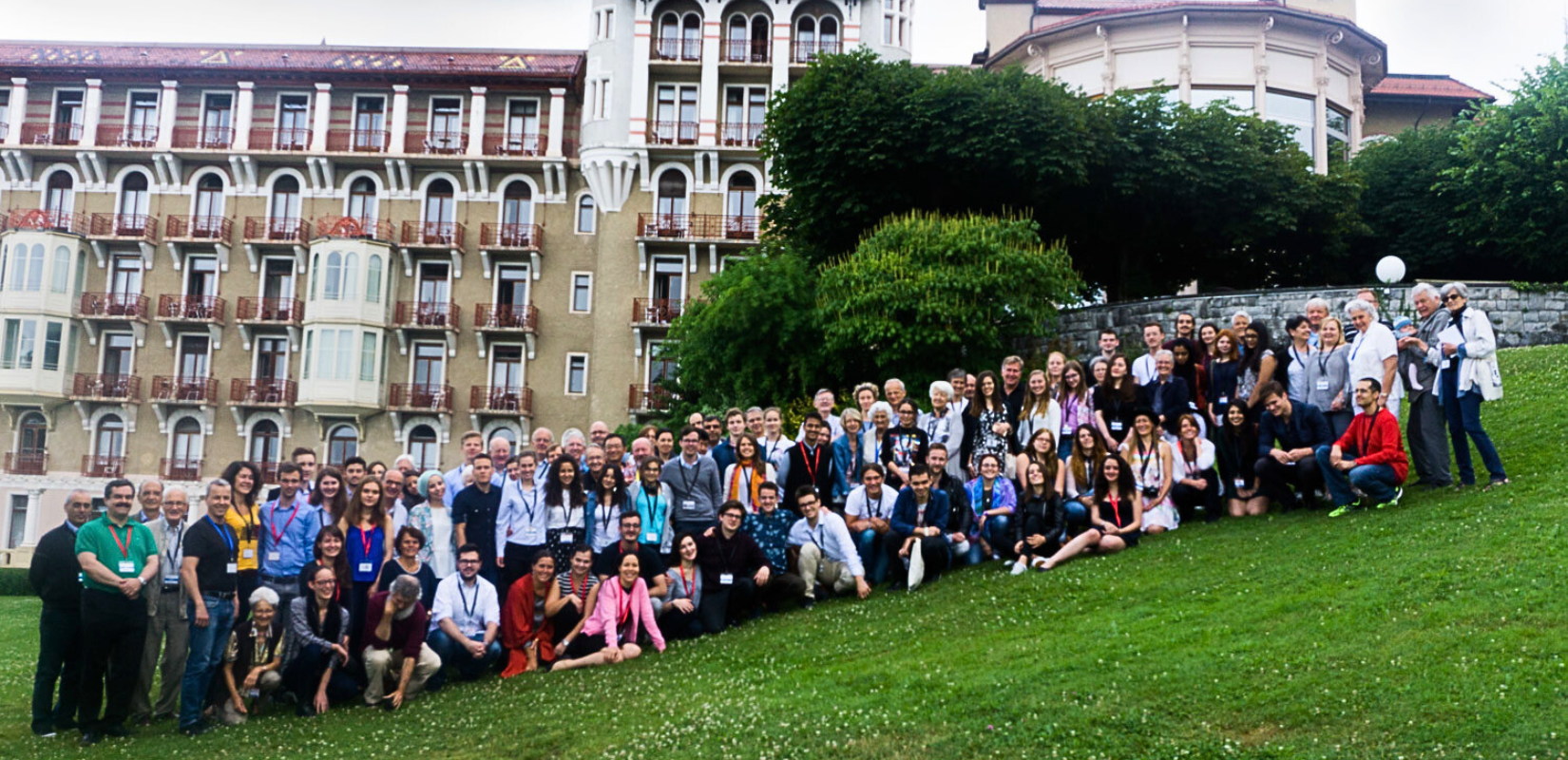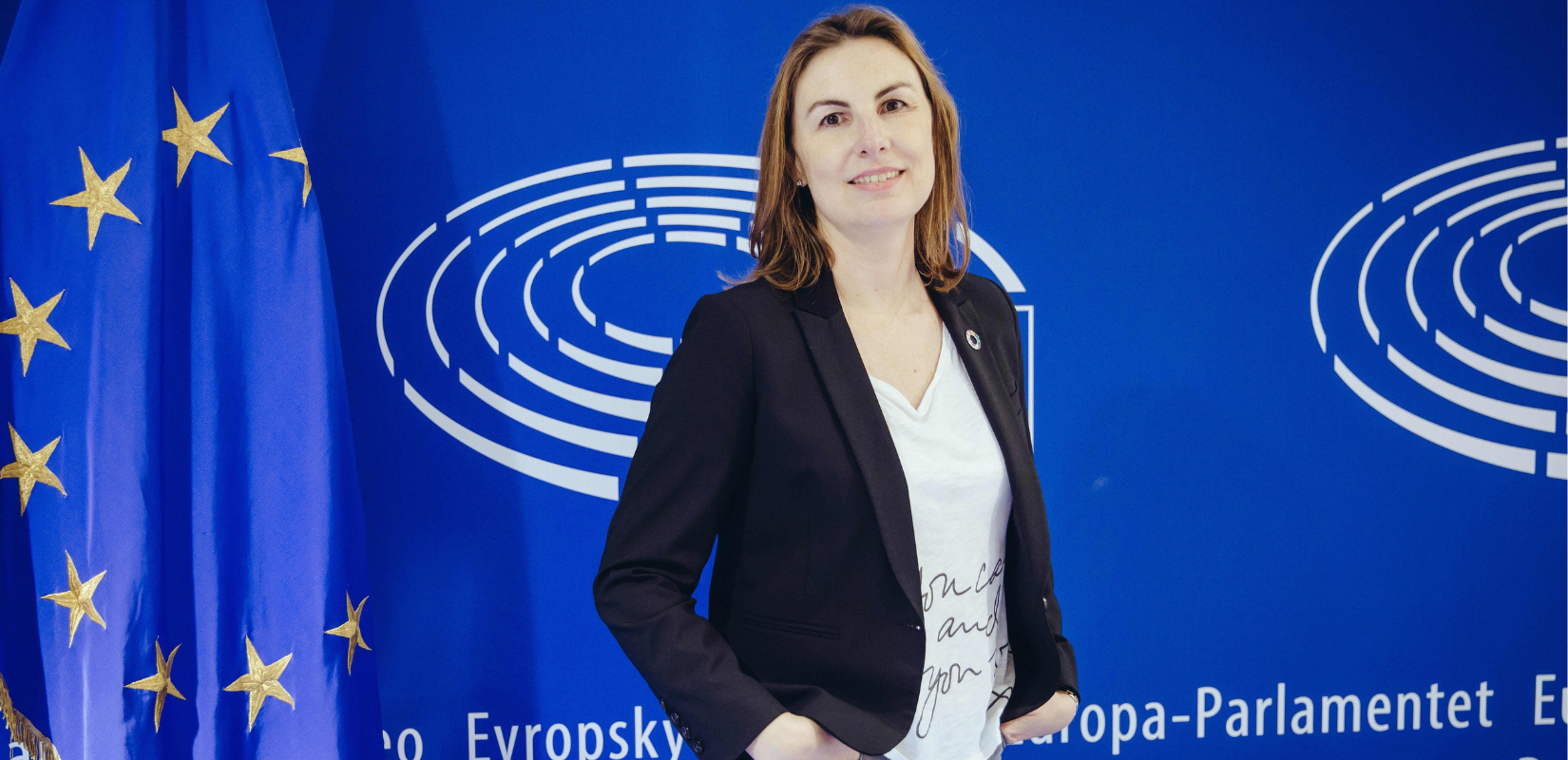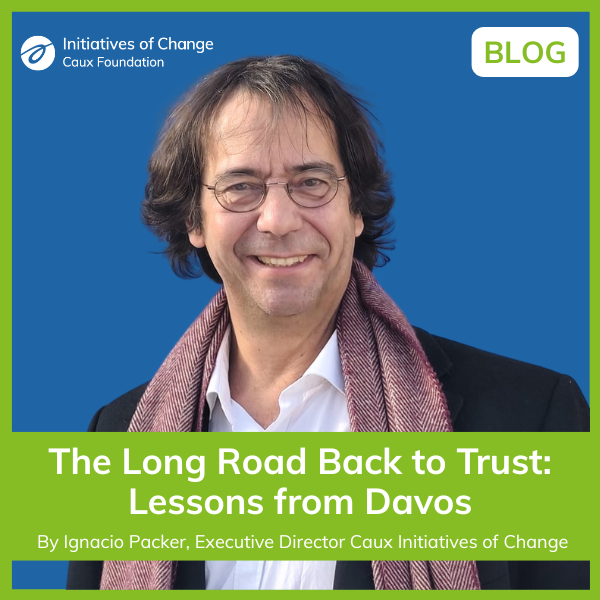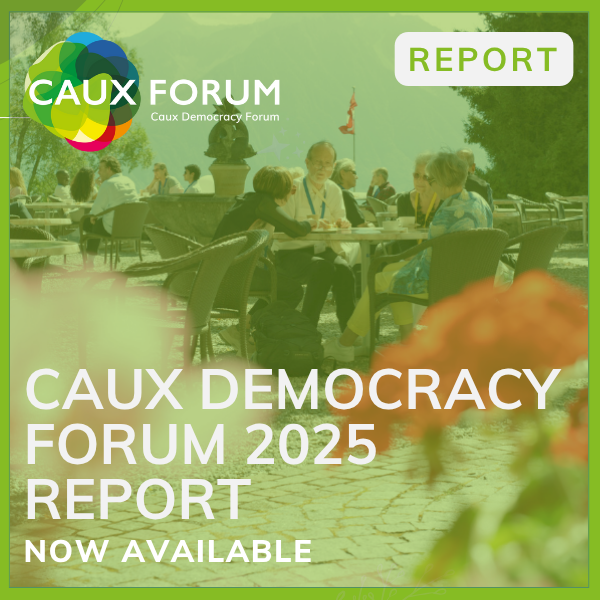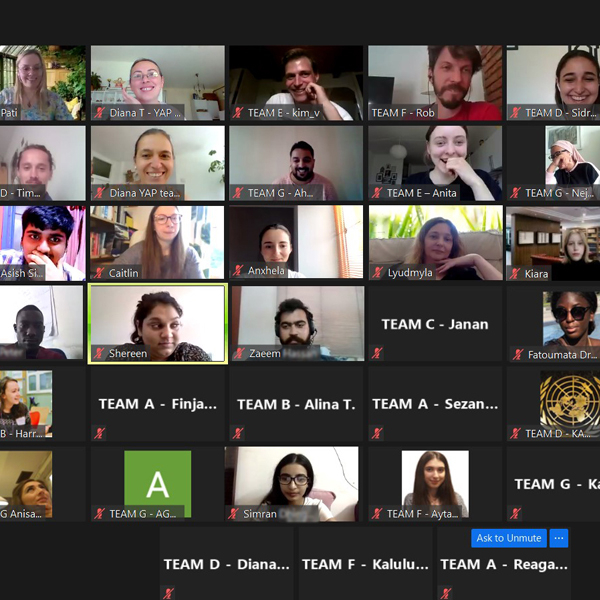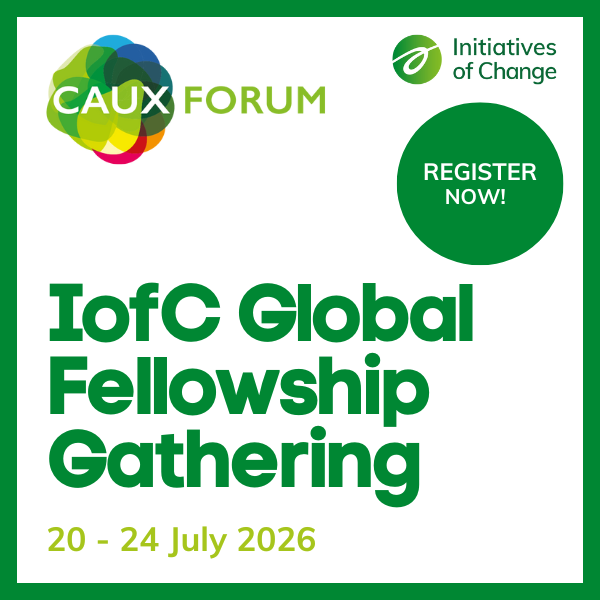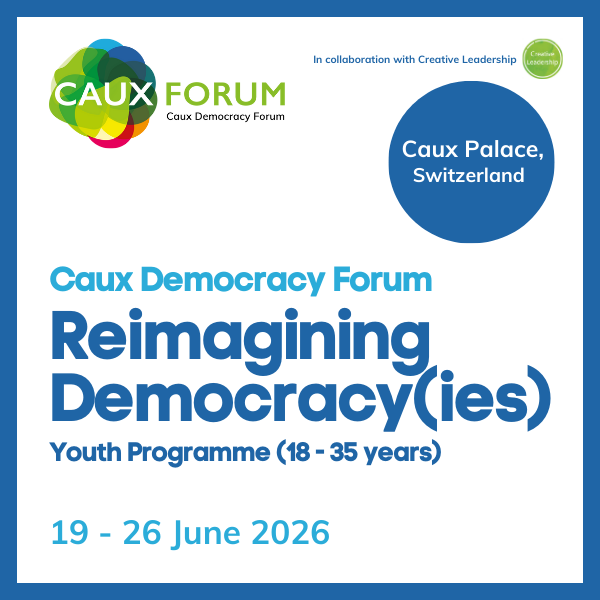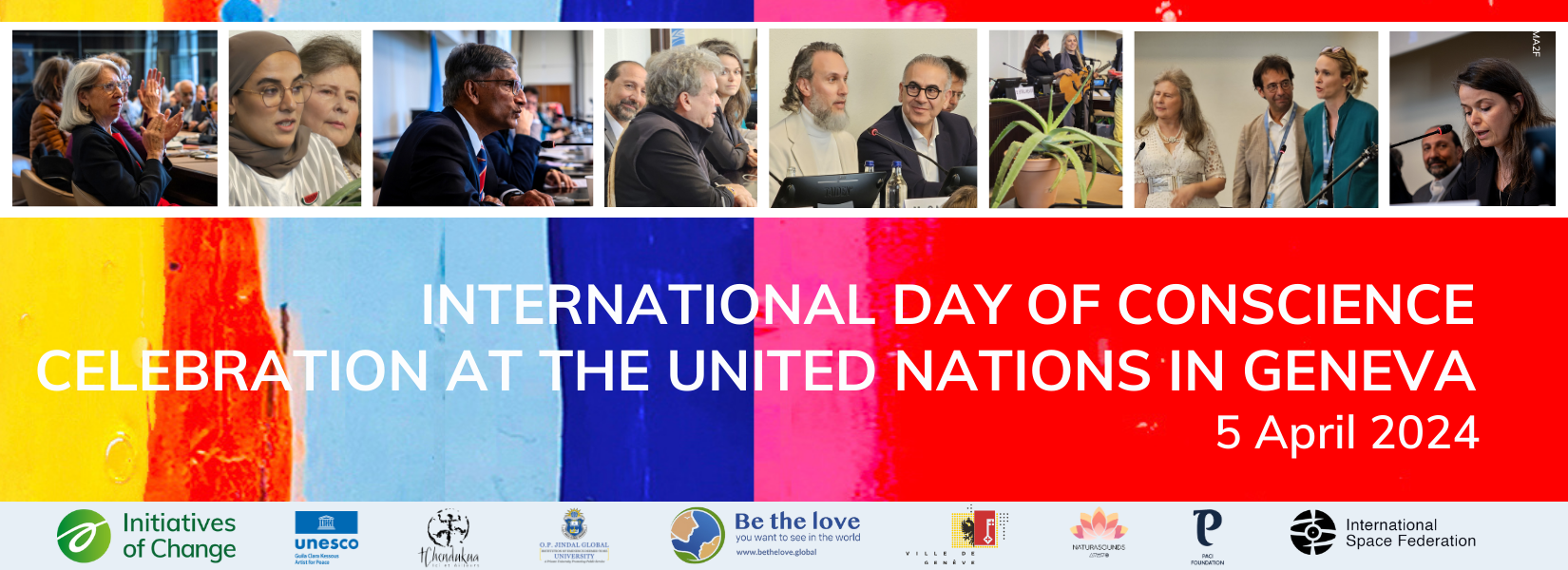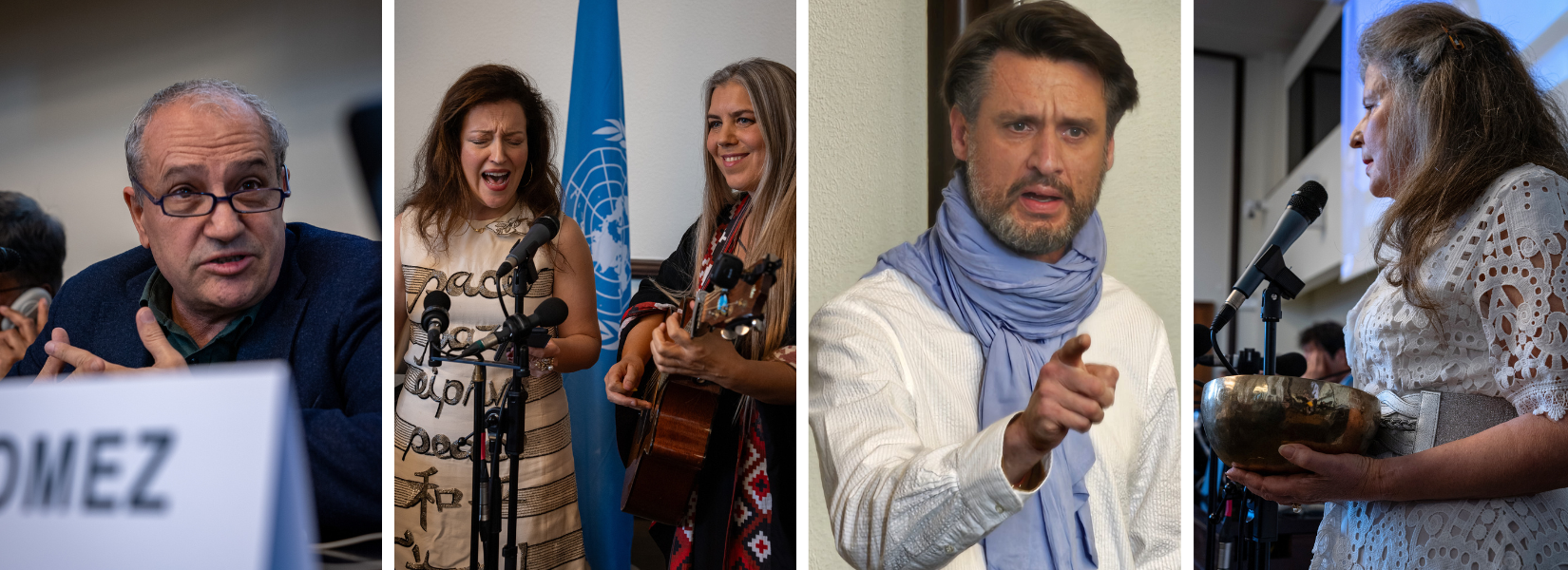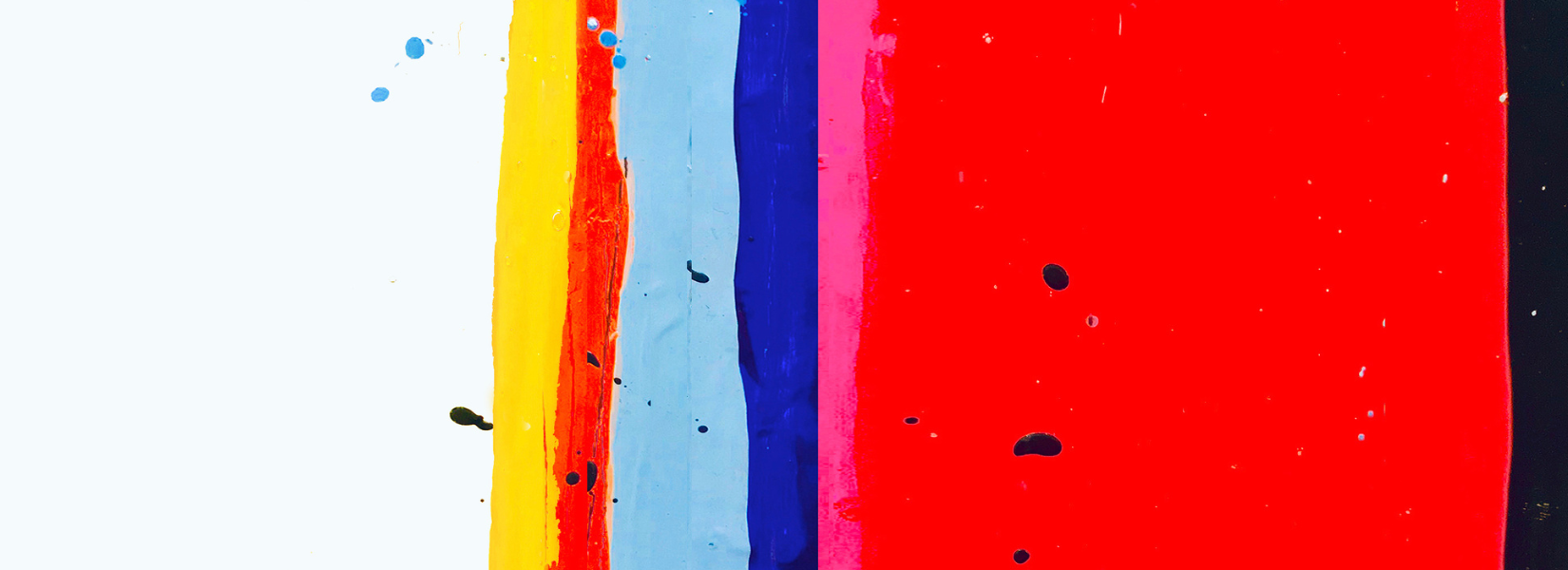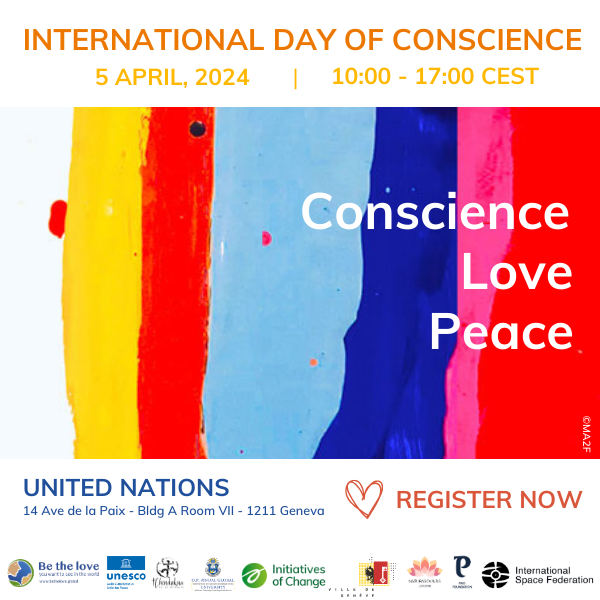
CAUX DEMOCRACY FORUM 2024 - PROGRAMME
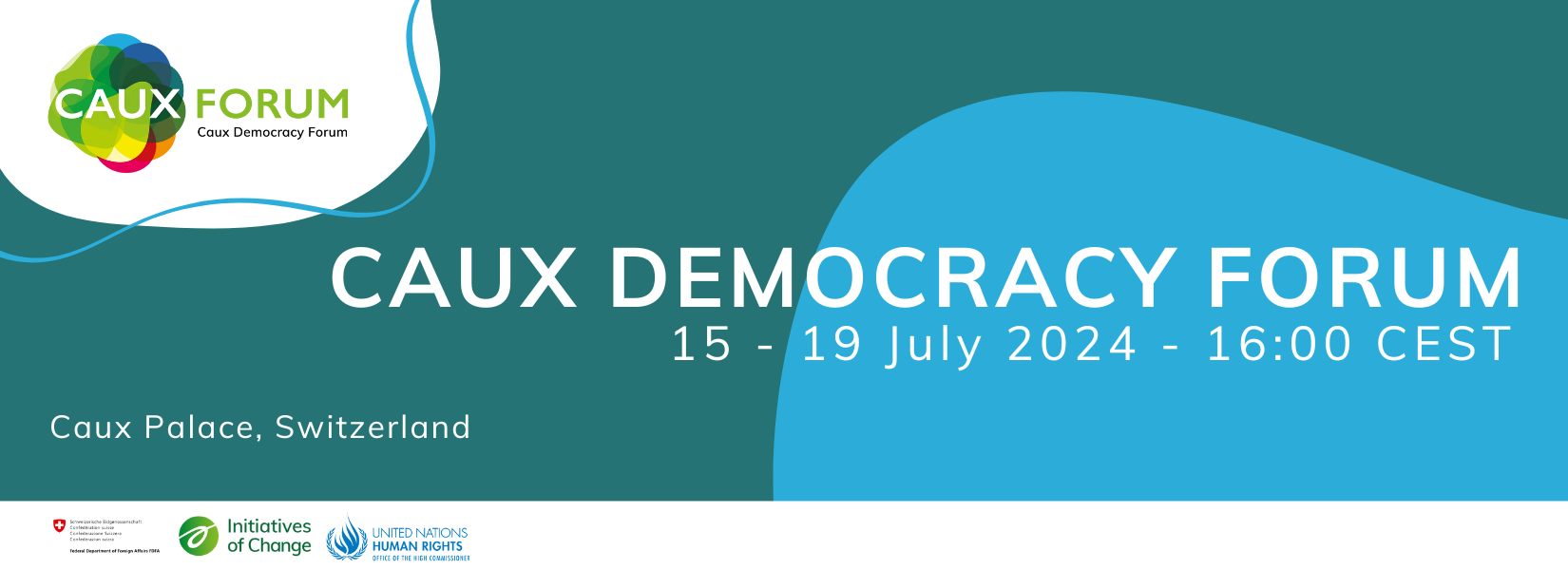
Welcome at the Caux Democracy Forum in Caux (15 - 19 July 2024).
Please note that the announced times are based on CEST time and that this programme might be subject to change.
You can find detailed information on the event and our speakers & artists here:
* Opening Ceremony Caux Democracy Forum - 15 July 2024, 16:00 CEST
* Full-residential Caux Democracy Forum - 15 - 19 July 2024
* Download the programme (overview)
programme
Monday, 15 July
OPENING CEREMONY: Revitalising democracy - towards inclusive and peaceful societies across Europe and the world
In collaboration with the Geneva Diplomatic Club, the opening ceremony of the Caux Democracy Forum will take place at the Caux Palace on 15 July at 16:00 CEST, followed by a reception and concert organised with the support of the Montreux Jazz Artists Foundation.
If you're not planning to attend the entire four-day residential forum, you can still register for the opening ceremony. To secure your place, we kindly ask you to fill out the online registration form.
- Cost for Day Guests: CHF 70.-/person (including reception & concert). Please note that If you have registered for the full-residential forum (15 - 19 July) the Opening Ceremony is included in your package and that you don't have to register separately.
Programme
MUSIC
- Jean-Marc Vignoli, Violonist
WELCOME BY THE MASTER OF CEREMONY
- Ignacio Packer, Executive Director Caux Initiatives of Change Foundation
WELCOME ADDRESS
- Jacqueline Coté, President Caux Initiatives of Change Foundation
- Raymond Loretan, Chairman Geneva Diplomatic Club
A WELCOME FROM SWITZERLAND
Ambassador Thomas Guerber, Deputy State Secretary, Head of UN Division
MUSIC
- Jean-Marc Vignoli, Violonist
KEYNOTE
- Nada Al-Nashif, United Nations Deputy High Commissioner for Human Rights
MUSIC
MUSIC
- Jean-Marc Vignoli, Violonist
KEYNOTE
- Ambassador Andrius Krivas, Chair of the Committee of Ministers’ Deputies, Permanent Representative of Lithuania to the Council of Europe
MUSIC
- Jean-Marc Vignoli, Violonist
LIVING LIBRARY: VOICES FROM THE MAP
Three youth from three continents sharing testimonies of their day-to-day life and what democracy means for them
- Maruee Pahuja (India), Expressive Arts Therapy Facilitator & Strategist, Visual Artist & Eye-care Practitioner
- Jonas Truneh (UK), Project Development Officer at Triangle
- Sidra Raslan (Syria), Creative Leadership & HP Amplify Impact Partner Sustainability Programme
MUSIC
- Jean-Marc Vignoli, Violonist
REFLECTIONS
- Prof. Rajmohan Gandhi, Historian, Biographer and former Member of India’s Parliament
WHAT'S NEXT IN CAUX?
- Sarah Noble, Head of Global Engagement, Caux Initiatives of Change
MUSIC
- Jean-Marc Vignoli, Violonist
REFRESHMENTS
EXPOSITION "About Democracy..." - Political Cartoons by Patrick Chappatte
FOLK-POP CONCERT by NOLA KIN
With the support of the Montreux Jazz Artists Foundation
RECEPTION: Buffet-style dinner
SUNSET NETWORKING & HISTORICAL GUIDED TOURS
- Between 20:00 and 22:00: SUNSET NETWORKING (Sunset at 21:20).
- Between 20:00 - 21:15: Possibility for HISTORICAL GUIDED TOURS of the Caux Palace (mainly for guests of the Diplomatic Club)
Tuesday, 16 July
GREETING THE DAY CEREMONY
With:
- LEWIS CARDINAL, Leader of the Global Indigenous Dialogue
A MOMENT OF QUIET REFLECTION
With:
JEAN-MARC VIGNOLI, violin
BREAKFAST
WELCOME TO THE CAUX PALACE
Practical information for your stay in Caux
PLENARY: HEALING THE WOUNDS OF THE PAST - FORGIVENESS & RESTITUTION
Hosts:
- PETER RIDDELL, Convenor, Agenda for Reconciliation, Initiatives of Change UK
- DAYA BHAGWANDAS, Social Entrepreneur, Neuro Educator and Yoga Master
Speakers:
- ASSAAD CHAFTARI, Co-Founder of Fighters for Peace
- DR. PETER SHAMBROOK, Independant Scholar & Historical Consultant, Balfour Project
- ANGELA STARAVOYTOVA, Peacebuilder & Facilitator, Foundations for Freedom, Ukraine
- REV DR. JAMES MOVEL WUYE, Pentecoastal Pastor and Co-Executive Director of the Interfaith Mediation Centre Kaduna, Nigeria
- IMAM DR. MUHAMMAD NURAYN ASHAFA, Co-Executive Director of the Interfaith Mediation Centre Kaduna, Nigeria
- AMINA DIKEDI-AJAKAIYE, Immediate past-president of Creators of Peace International
- NADA AL-NASHIF, United Nations Deputy High Commissioner for Human Rights
BREAK
COMMUNITY GROUPS
LUNCH
FREE TIME
WORKSHOPS
Workstream 1: Healing the Wounds of the Past - Forgiveness & Restitution
SESSION 1 - PART 1
With:
- ASSAAD CHAFTARI, Co-Founder of Fighters for Peace (Lebanon)
- DR. PETER SHAMBROOK, Independant Scholar & Historical Consultant, Balfour Project (UK)
Workstream 2: People-centred Economics: Creating common wealth
With:
- MARK GOYDER, Founder Director of Tomorrow’s Company (UK)
Workstream 3: Civil Society fostering Dialogue: From Polarization to Participation, A Guide to Action
Exploring cornerstones and values for progress while avoiding double standards (Part 1)
With:
- PARTICIPANTS
- CHRISTOPH SPRENG, Advisor to the Standing Comittee CINGO
- DR LAURIE JOHNSTON, Professor of Theology, Emmanuel College, Boston/USA
TEA AND COFFEE BREAK
WORKSHOPS
Workstream 1: Healing the Wounds of the Past - Forgiveness & Restitution
SESSION 1 - PART 2:
Interactive breakout rooms, getting to know each other and sharing discoveries
Workstream 2: People-centred Economics: Developing a media of integrity
With:
- RICHARD WERLY, Journalist (Switzerland)
-
CAROLINE VUILLEMIN, General Director Fondation Hirondelle
Workstream 2: Civil Society fostering Dialogue: From Polarization to Participation, A Guide to Action
Exploring cornerstones and values for progress while avoiding double standards (Part 2)
With:
- PARTICIPANTS
- CHRISTOPH SPRENG, Advisor to the Standing Comittee CINGO
- DR LAURIE JOHNSTON, Professor of Theology, Emmanuel College, Boston/USA
EVENING MEAL
FILM NIGHT: "THE HARDEST BRIDGE"
FILM: THE HARDEST BRIDGE
A special preview of a new documentary film
The title of the film refers to the journey of a young woman whose father, a British government minister, was killed in an explosion in 1984, and the Irish Republican Army member who planted the bomb.
The two people mentioned above, Jo Berry and Dr Patrick Magee, together with the director of the film, Dr Imad Karam, Executive Director of IofC International and a Palestinian from Gaza, will be present and will answer questions after the film.
Wednesday, 17 July
GREETING THE DAY CEREMONY
With:
- LEWIS CARDINAL, Leader of the Global Indigenous Dialogue
A MOMENT OF QUIET REFLECTION
BREAKFAST
PLENARY: REVITALISING DEMOCRACY AND HUMAN RIGHTS
The struggle for democracy and human rights demands courage and commitment. We will hear from people active in this struggle. It will offer all a chance to understand the challenge and to discover how each of us can contribute.
Hosts:
- JOHN BOND, Journalist & Author, Initiatives of Change
- SARAH NOBLE, Head of Global Engagement, Caux Initiatives of Change Foundation
Speakers
- SYLVIA VALENTIN, Advocacy Officer Terre des Hommes Switzerland & Board Member Coalition for Corporate Responsibility
- LEWIS CARDINAL, Educator, Storyholder, Leader of the Global Indigenous Dialogue, Canada
- CORINNE MOMAL-VALIAN, Executive Director Kofi Annan Foundation
- TODD HOWLAND, Chief of the Development, Economic, and Social Rights Branch of the Office of the High Commissioner for Human Rights
BREAK
COMMUNITY GROUPS
LUNCH
FREE TIME
WORKSHOPS
Workstream 1: Healing the Wounds of the Past - Forgiveness & Restitution
SESSION 2 - PART 1
With:
- JO BERRY, Founder of Building Bridges for Peace and Public Speaker
- DR PATRICK MAGEE, Author and Public Speaker
Workstream 2: People-centred Economics: Defeating Corruption
With:
- FARAI MAGUWU, Executive Director, Centre for Natural Resource Governance, Zimbabwe
Workstream 3: Civil Society fostering Dialogue: From Polarization to Participation, A Guide to Action
Unpacking the methodology of INGO Dialogues, harmonizing the inner and outer development (Part 1)
With:
- PARTICIPATION
- CHRISTOPH SPRENG, Advisor to the Standing Comittee CINGO
- DR LAURIE JOHNSTON, Professor of Theology, Emmanuel College, Boston/USA
TEA & COFFEE BREAK
WORKSHOPS
Workstream 1: Healing the Wounds of the Past - Forgiveness & Restitution
SESSION 2 - PART 2
Interactive breakout rooms, getting to know each other and sharing discoveries
Workstream 2: People-centred Economics: Refugees for global solution: rebuilding communities and country of origin
With:
- DR MUNA ISMAIL, Programme Manager Refugees as Re-Builders™, IofC UK
- ALHAMISS DICKO, President GEN-émergent, Mauritania
- RIANNE TEN VEEN, Consultant/ Freelancer in training, dialogue, environment and project management
Workstream 3: Civil Society fostering Dialogue: From Polarization to Participation, A Guide to Action
Unpacking the methodology of INGO Dialogues, harmonizing the inner and outer development (Part 2)
With:
- PARTICIPANTS
- CHRISTOPH SPRENG, Advisor to the Standing Comittee CINGO
- DR LAURIE JOHNSTON, Professor of Theology, Emmanuel College, Boston/USA
EVENING MEAL
CAUX CANDLELIGHT CONVERSATIONS
VIOLIN CONCERT
With:
HYONG JOON WON (South Korea), Artistic Director, Lindenbaum Festival Orchestra
Thursday, 18 July
GREETING THE DAY CEREMONY
With:
- LEWIS CARDINAL, Leader of the Global Indigenous Dialogue
A MOMENT OF QUIET REFLECTION
BREAKFAST
PLENARY: FROM POLARIZATION TO PARTICIPATION
Hosts:
- IGNACIO PACKER, Executive Director, Caux Initiatives of Change Foundation
- SARAH NOBLE, Head of Global Engagement, Caux Initiatives of Change Foundation
Speakers:
- MARTIN BOGOMILOV PENOV (Bulgaria), Vice-President of the Young European Federalists
- MURSAL KHAROTI (Afghanistan/UK), Mental Health Activist
- VERONICA TING-HSIN HONG (Taiwan), Coach, Changemaker & Social Entrepreneur
- PROF MYROSLAV MARYNOVYCH (Ukraine), Educator & Human Rights Activist
- HON. JACQUELINE NYIBOL BENJAMIN, Member of Parliament South Sudan
- NATHALIE CHAVANNE (France), Member of Board of Directors Initiatives of Change France
- HON LEE JU-YOUNG (South Korea), former deputy speaker of South Korea’s National Assembly, former Minister of Ministry of Maritime Affairs and Fisheries, five-term National Assembly member
- VERONICA ALCOCER GARCIA (Colombia), First Lady of Colombia
BREAK
COMMUNITY GROUPS
LUNCH
FREE TIME
WORKSHOPS
Healing the Wounds of the Past - Forgiveness & Restitution
SESSION 3 - PART 1
With:
- REV DR. JAMES MOVEL WUYE, Pentecoastal Pastor and Co-Executive Director of the Interfaith Mediation Centre Kaduna, Nigeria
- IMAM DR. MUHAMMAD NURAYN ASHAFA, Co-Executive Director of the Interfaith Mediation Centre Kaduna, Nigeria
.
Workstream 2: People-centred Economics: Defending democracies under attack
With:
- ANGELA STARAVOYTOVA and colleagues from Ukraine
Workstream 3: Civil Society fostering Dialogue: From Polarization to Participation, A Guide to Action
Identifying your own course of action, recognizing that words and deeds matter (Part 1)
With:
- PARTICIPANTS
- CHRISTOPH SPRENG, Advisor to the Standing Comittee CINGO
- DR LAURIE JOHNSTON, Professor of Theology, Emmanuel College, Boston/USA
TEA & COFFEE BREAK
WORKSHOPS
Workstream 1: Healing the Wounds of the Past - Forgiveness & Restitution
SESSION 3 - PART 2
Interactive breakout rooms, getting to know each other and sharing discoveries
People-centred Economics: A climate-change economy
With:
- SIDRA RASLAN, Creative Leadership & HP Partner Sustainability Programme
Workstream 3: Civil Society fostering Dialogue: From Polarization to Participation, A Guide to Action
Identifying your own course of action, recognizing that words and deeds matter (Part 2)
With:
- PARTICIPANTS
- CHRISTOPH SPRENG, Advisor to the Standing Comittee CINGO
- DR LAURIE JOHNSTON, Professor of Theology, Emmanuel College, Boston/USA
EVENING MEAL
CAUX TALENT NIGHT
Friday, 19 July
GREETING THE DAY CEREMONY
With:
- LEWIS CARDINAL, Leader of the Global Indigenous Dialogue
A MOMENT OF QUIET REFLECTION
BREAKFAST
CHECK-OUT AT RECEPTION
On the day of departure, the forum will end after lunch. For organisational reasons and to prepare our spaces for other events, we kindly request all participants to check out of their rooms by 10:00 CEST on the day of departure and to leave the site by 14:00 CEST.
Please note that a luggage room will be at your disposal until your departure after lunch.
COMMUNITY GROUPS
BREAK
CLOSING CEREMONY
LUNCH
DEPARTURE
On the day of departure, the forum will end after lunch. For organisational reasons and to prepare the Caux Palace for the following event, we kindly request all participants to check out of their rooms by 10:00 CEST on the day of departure and to leave the site by 14:00 CEST.
Please note that a luggage room will be at your disposal until your departure after lunch.
